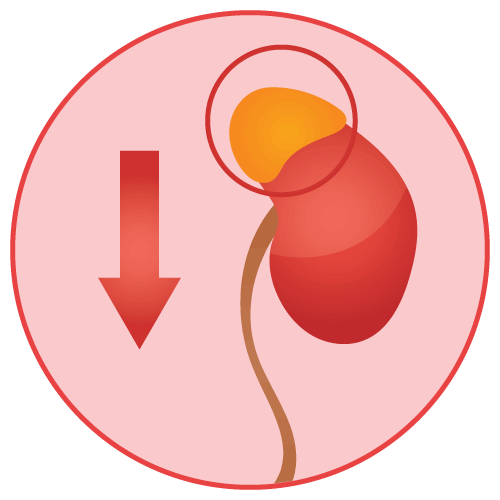| Name | Adrenal insuficciency |

Adrenal insuficciency
Adrenal insufficiency is a condition in which the adrenal glands, two small glands located on top of the kidneys, do not produce enough of the hormones cortisol and/or aldosterone. Cortisol helps regulate metabolism and the body's response to stress, while aldosterone helps regulate blood pressure and fluid balance.
There are two main types of adrenal insufficiency: primary adrenal insufficiency, also known as Addison's disease, and secondary adrenal insufficiency, which is caused by problems with the pituitary gland or hypothalamus.
Common symptoms of adrenal insufficiency include fatigue, weight loss, low blood pressure, weakness, darkening of the skin, and muscle pain. In severe cases, adrenal insufficiency can lead to life-threatening complications, such as adrenal crisis, which is characterized by severe low blood pressure, vomiting, and dehydration.
Diagnosis of adrenal insufficiency is based on a physical exam, medical history, and laboratory tests, including cortisol and aldosterone levels in the blood. Treatment depends on the underlying cause and may involve hormone replacement therapy, lifestyle changes, and management of underlying conditions.
It is important to seek medical attention if you experience symptoms of adrenal insufficiency, as early diagnosis and treatment can help prevent potential complications and improve outcomes. People with a family history of adrenal insufficiency or those taking medications that can affect the adrenal glands should work closely with their healthcare provider to monitor their condition and receive regular care.
 Bangla
Bangla English
English